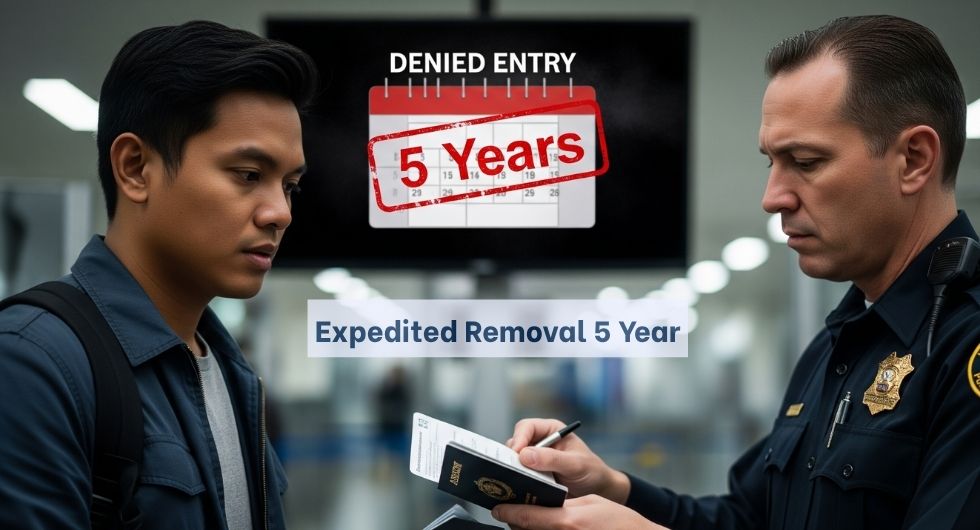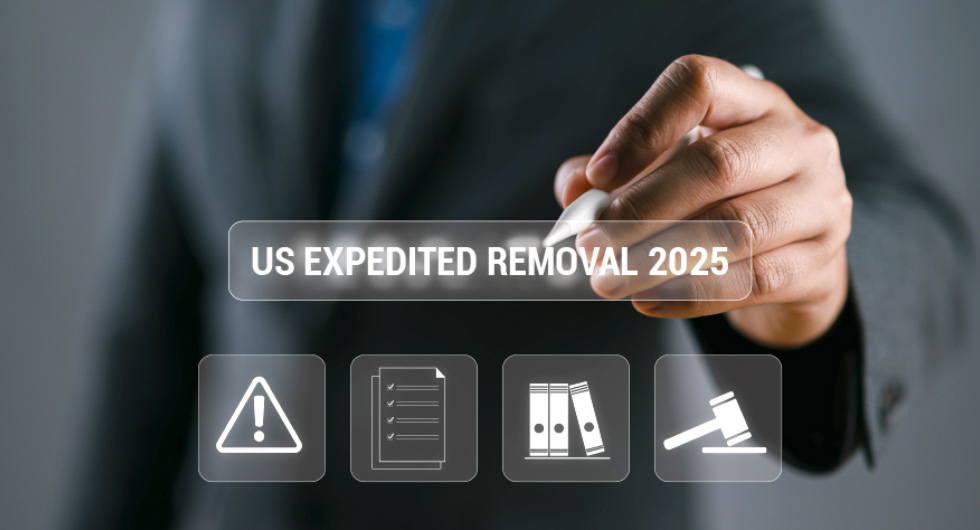US Immigration Vaccine Requirements: Your 2025 Guide
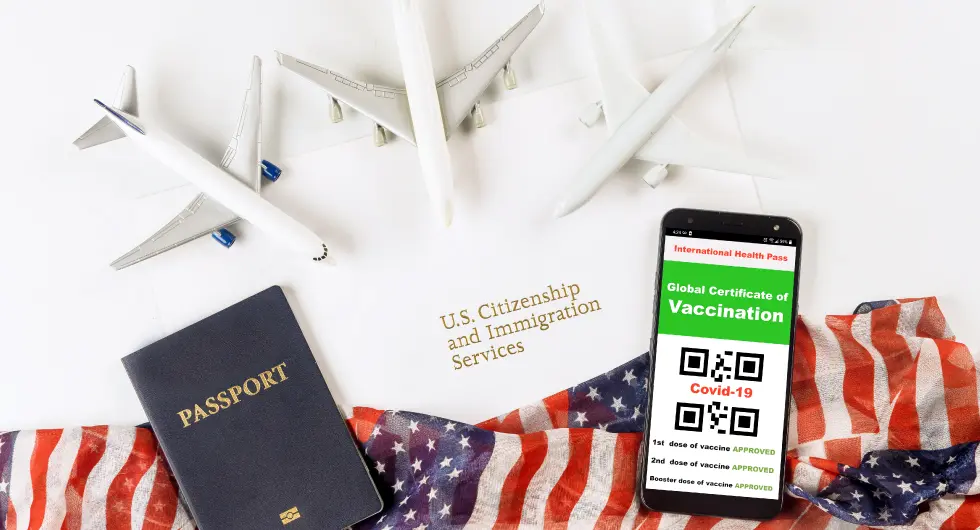
It is necessary to familiarize oneself with the US immigration vaccine requirements, especially the persons applying on a green card basis or becoming an immigrant. Such compulsory immunizations safeguard the health of the population and they extend to the majority of applicants. When moving to the U.S. or when one is abroad and wants to apply within the U.S, the immigration to US vaccine requirements management is proper to prevent delays.
This guide will discuss mandatory vaccinations, a medical examination, exemptions, and the important updates you should know to make your experience go smoothly.
1. List of Vaccines Required for US Immigration
Meeting the US immigration vaccine requirements is a crucial step to ensure admissibility. Below you'll find the complete list of vaccines needed for US immigration.
1.1. Mandatory Vaccines per U.S. Law
The US immigration vaccine requirements are governed primarily by the Immigration and Nationality Act (INA) and implemented by U.S. Citizenship and Immigration Services (USCIS). All immigrant visa applicants and individuals applying for adjustment of status (green card applicants) must provide documentation showing they have received certain required vaccines for US immigration as a condition of admissibility.
These compulsory vaccinations immunise against the diseases below:
- Mumps, measles and rubella (MMR)
- Polio
- Diphtheria toxoids and Tetanus
- Whooping cough (pertussis)
- Haemophilus influenzae type B (Hib)
- Hepatitis B
Failure to receive these vaccines, when they are medically and age appropriate, classifies an applicant with a Class A medical condition, which renders them inadmissible until the vaccinations are completed.

Overview of vaccines needed under US immigration vaccine requirements
1.2. CDC’s Additional Vaccines for US Immigration
Beyond the statutory list, the Centers for Disease Control and Prevention (CDC) requires additional vaccines based on current public health priorities. Recommended by the Advisory Committee on Immunization Practices (ACIP) and enforced by USCIS, these vaccines form part of the updated list of vaccines for US immigration and include:
- Varicella (chickenpox)
- Seasonal influenza (required only if the medical exam occurs during flu season, October 1 through March 31)
- Pneumococcal pneumonia
- Rotavirus
- Hepatitis A
- Meningococcal disease
Previously, COVID-19 vaccination was part of the immigration to US vaccine requirements but has been removed as of 2025.
1.3 Medical and Age Appropriateness
The list of vaccines for US immigration vary depending on the applicant’s age and medical condition. The civil surgeon or panel physician conducting the immigration medical exam assesses whether each vaccine is medically appropriate and age-appropriate. If a vaccine is not medically suitable for the applicant (for example, due to allergies or pregnancy), a waiver may be requested in accordance with US immigration vaccine requirements.
Applicants must have at least one vaccination entry per applicable vaccine row in their vaccination assessment for the process to be considered complete.
2. The Immigration Medical Examination Process
When applying for a U.S. green card (adjustment of status) or an immigrant visa through consular processing, all applicants must undergo a medical examination. This process ensures applicants do not pose a public health risk and have received all vaccines required under the US immigration vaccine requirements.
2.1. Inside the United States (Adjustment of Status)
For applicants adjusting status from within the United States, the medical examination must comply with US immigration vaccine requirements and be conducted by a USCIS-designated Civil Surgeon.
Scheduling: A Civil Surgeon can be found by means of authentic USCIS Find a Doctor tool. Arrivals ought to be made to the picked provider directly.
Form I-693:The Report of Medical Examination and Vaccination Record is a form that should be filled by the Civil Surgeon. It should only be signed not more than 60 days prior to filling of Form I-485 and is valid up to two years.
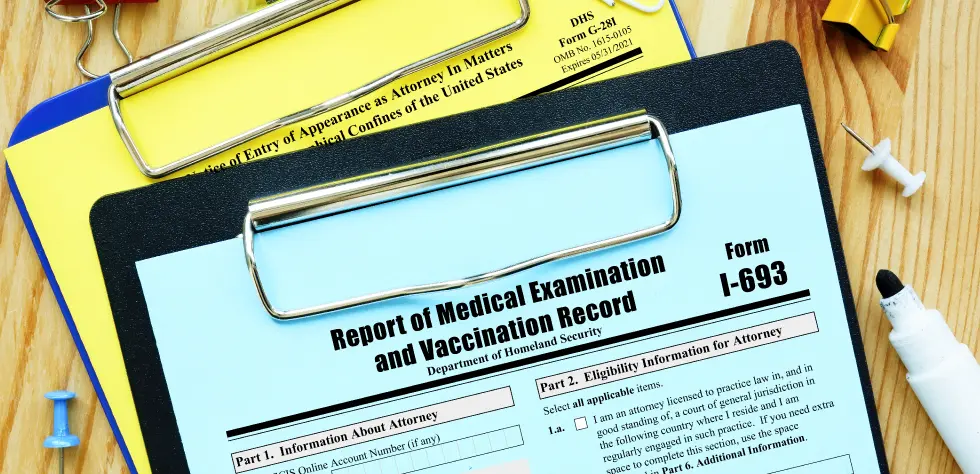
US immigration vaccine requirements: Form I-693 medical record
The medical exam includes:
- A general physical examination
- Tuberculosis screening (IGRA blood test)
- Blood test for syphilis (RPR)
- Gonorrhea screening (urine test for applicants aged 15 and older)
- Verification of all vaccines required for US immigration
Upon completion, the Civil Surgeon provides a sealed envelope containing the signed Form I-693. This sealed form must be submitted with the adjustment application and must not be opened.
2.2. Outside the United States (Consular Processing)
Applicants for immigrant visas abroad must undergo a medical exam by a Panel Physician approved by the U.S. Department of State in compliance with US immigration vaccine requirements.
Location: The examination must be scheduled with a medical facility designated by the relevant U.S. embassy or consulate. Specific instructions are provided through the visa case notification.
Required Forms:
- DS-2054: Medical Examination
- DS-3025: Vaccination Documentation Worksheet
- (Optional): DS-3026 or DS-3030, depending on the case
The exam typically includes:
- Review of prior immunization history
- Standard physical examination
- Testing for tuberculosis, syphilis, and gonorrhea
- Laboratory titers to confirm immunity if vaccination records are incomplete
- Administration of any vaccines not yet received, in accordance with CDC and ACIP guidelines, fulfilling the US immigration vaccine requirements
Upon completion, the Panel Physician issues a sealed medical report to be presented during the visa interview. A personal copy of Form DS-3025 is also provided.
Too many forms, rules, and US immigration vaccine requirements to keep track of? Let UOM Global simplify the process for you.
3. Exemptions and Waivers
While meeting US immigration vaccine requirements is mandatory, exemptions exist for:
3.1 Medical Grounds for Exemption
A Civil Surgeon or Panel Physician may grant exemptions when vaccines are medically inappropriate, including cases of:
- Use outside age recommendations.
- Medical contraindications (allergies, pregnancy, immune disorders)
- Too short spacing between doses
- Period demand (off season, e.g. influenza)
These exemptions are documented on forms I-693/DS-3025 without additional paperwork under US immigration vaccine requirements.
3.2 Vaccine Unavailability
An exemption may also be issued if a vaccine is:
- Not routinely available in the location where the examination is conducted
- In nationwide shortage, as declared by the CDC
If any of these apply, the physician will mark the vaccine as “not routinely available” or “not medically appropriate” and include justification in the official medical forms. This also qualifies as a blanket waiver.
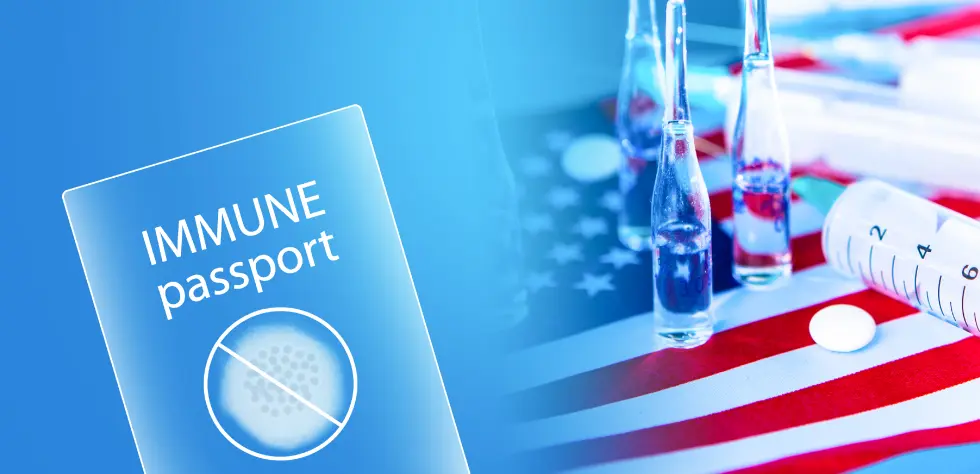
Ensuring compliance with US immigration vaccine requirements
3.3 Religious or Moral Belief Waiver
A request can be made that an applicant be exempted on the basis of sincerely held religious or moral beliefs with concern to any vaccination. To qualify:
- This objection should not only be used in limiting a particular vaccine but it should be agreeable to all the vaccines.
- It has to be held in strong belief, religious or strongly on moral conviction.
- To obtain the benefits, the applicant should have some supportive materials, a personal statement with a demonstration of belonging to religion or belonging evidence.
This is a waiver which involves the filing of form I-601 and under which USCIS will consider the situation discretionally. The officer will first evaluate the truthfulness and rationality of the faith in order to decide.
3.4 Exception for Adopted Children Under Age 10
Children under 10 years of age who are being adopted from abroad may qualify for a special exemption. This applies in cases where:
- It is either the child is being adopted as an orphan or adoption under the Hague Adoption Convention
- The adoptive parents sign an affidavit where they would be expected to have the child properly vaccinated within 30 days of getting to the U.S.
This exemption is granted under INA Section 212(a)(1)(C).
4. Recent Updates and Policy Changes
US immigration vaccine requirements have evolved over the years to reflect advances in medical science, public health priorities, and emerging global health threats. Knowledge of new developments is vital to both applicants and immigration practitioners.
4.1 Removal of COVID-19 Vaccine Requirement
As of March 11, 2025, the CDC (Centers for Disease Control and Prevention) has removed the COVID-19 vaccination requirement for individuals applying for immigrant visas or adjustment of status in the United States. This update follows the CDC’s latest health guidelines, recognizing that COVID-19 has moved from a pandemic to an endemic stage.
Based on official statements by USCIS and the U.S. Department of State, foreign nationals are not mandated anymore to present evidence of COVID-19 Vaccination as a part of the immigration medical consular examination process.
Although the COVID-19 vaccine is not anymore mandatory, people can still prefer to take it in the form of the personal healthcare choices.
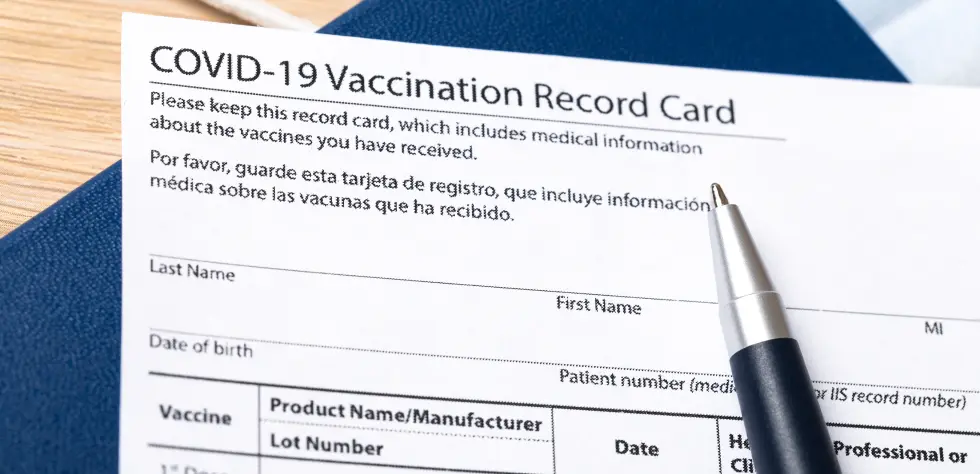
US immigration vaccine requirements update: COVID-19 no longer mandatory
4.2 Historical Changes to Vaccine Requirements
Other vaccines have been added or deleted over time, depending upon scientific evidence and considerations of population health:
- HPV Vaccine: Mandatory August 2008-December 2009 among 11-26 year old females, but as of January 2010 was dropped with changing CDC guidance.
- Zoster Vaccine: Mandatory between August 2008 and December 2009 in all applicants aged 60 and older, but revoked because the vaccine was not in high supply.
- Hepatitis A, Meningococcal and Rotavirus Vaccines: These were included in the list of CDC recommended vaccines after 2008, indicating their significance in preventing communicable diseases.
- Influenza Vaccine Requirement: Seasonal flu vaccine Mandatory only during flu season (October 1 to March 31). During this time, in case medical examination is conducted out of this time line, the vaccine is not compulsory.
These changes demonstrate how the list of vaccines needed for US immigration continues to evolve with updated CDC guidance and shifting public health priorities.
5. Failure to Meet Vaccination Requirements
Failure to meet the required vaccines for US immigration vaccine requirements may result in delays or denial of the visa or green card application. Applicants who have not received all required vaccines will be advised by the civil surgeon on how to complete the necessary immunizations under US immigration vaccine requirements. After receiving the vaccinations, new medical records need to be provided to carry on the procedure.
To the eligible ones, it is possible to make an application but they must attach supporting evidence of such. This can be in form of records of medical records filed or a vaccination waiver filed out of sincere grounds for religious or moral views.
Conclusion
Understanding US immigration vaccine requirements not only ensures legal compliance but also helps shorten processing times and avoid unnecessary delays or denials in visa or green card applications. Properly preparing vaccination records and completing the required medical exam under the US immigration vaccine requirements is a crucial step toward achieving your American dream.
Understanding vaccination requirements can be complex, especially as policies continue to change. With strong regional knowledge and deep expertise in U.S. immigration, UOM Global provides clear, accurate support throughout the medical and vaccination process.
Move forward with the right support—connect with UOM Global today.
View More
If you would like to request an update or have any questions, please contact us at [email protected].
Related Articles

